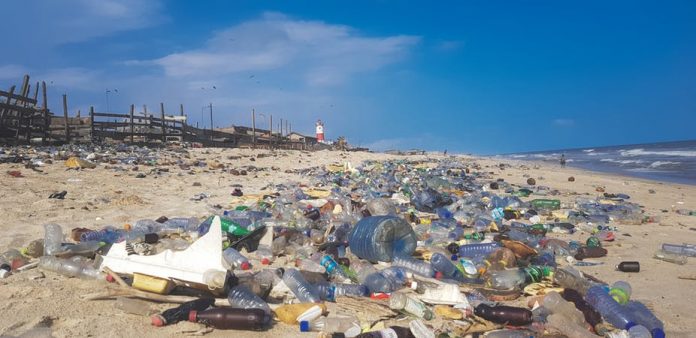Almost 2,500 tons of waste is generated daily in Accra. This is as a result of refuse being dumped and the environment being littered with polythene, bottles and drinking water sachets. Garbage blocks the gutters and can cause flooding and disease outbreaks.
One of the many sources of pollution are plastic sachets in which drinking water is sold on the streets of Ghana. The sachet drinking water business in Ghana is big. Sachet water is packaged in 500 mL polyethylene plastic bags which are heat-sealed on either end. It is a fast-growing source of drinking water in Ghana.
Known on the street as “pure water”, water in sachets is considered to be safe, hygienic and affordable. Consumed mostly by low and middle-income earners, the perception is that sachet water is of higher quality than tap water.
Sachet water is produced under the authority of Ghana’s Food and Drugs Board, which has been keen to promote the proper disposal of the plastic sachets. This is because discarded sachet bags pose serious environmental risks. They are fertile ground for mosquitoes to breed in, block drains and if they’re burnt they cause air pollution.
As a result, some water production companies carry ecological information with the words “respect the environment” and a symbol of a person depositing a sachet into a dustbin. Read more…



